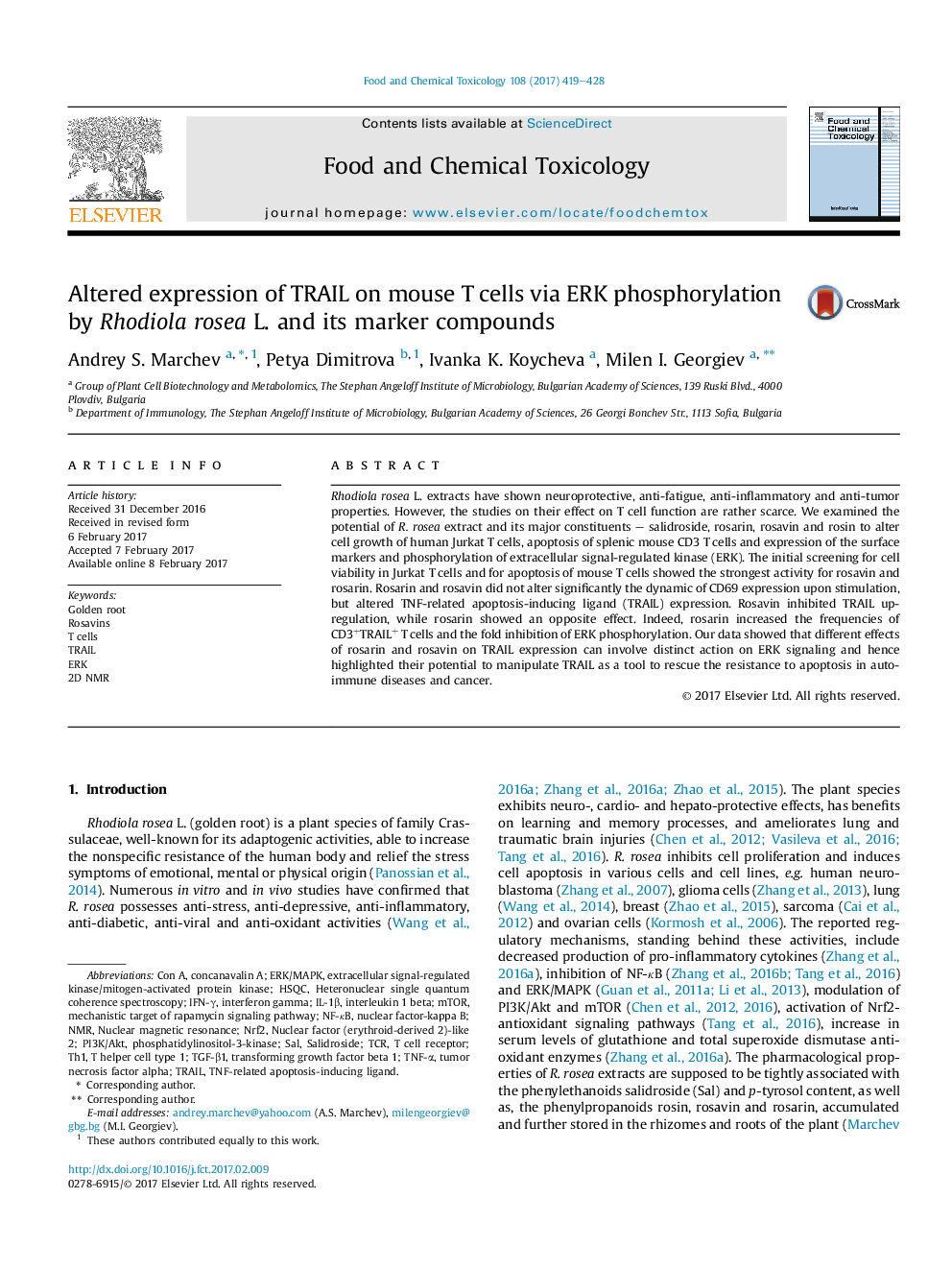| Article ID | Journal | Published Year | Pages | File Type |
|---|---|---|---|---|
| 5560304 | Food and Chemical Toxicology | 2017 | 10 Pages |
â¢The marker molecules in Rhodiola rosea L. rhizomes were identified by 2D NMR.â¢Rosarin and rosavin altered TNF-related apoptosis-inducing ligand (TRAIL) expression.â¢Rosarin and rosavin affected TRAIL expression via ERK phosphorylation.
Rhodiola rosea L. extracts have shown neuroprotective, anti-fatigue, anti-inflammatory and anti-tumor properties. However, the studies on their effect on T cell function are rather scarce. We examined the potential of R. rosea extract and its major constituents - salidroside, rosarin, rosavin and rosin to alter cell growth of human Jurkat T cells, apoptosis of splenic mouse CD3 T cells and expression of the surface markers and phosphorylation of extracellular signal-regulated kinase (ERK). The initial screening for cell viability in Jurkat T cells and for apoptosis of mouse T cells showed the strongest activity for rosavin and rosarin. Rosarin and rosavin did not alter significantly the dynamic of CD69 expression upon stimulation, but altered TNF-related apoptosis-inducing ligand (TRAIL) expression. Rosavin inhibited TRAIL up-regulation, while rosarin showed an opposite effect. Indeed, rosarin increased the frequencies of CD3+TRAIL+ T cells and the fold inhibition of ERK phosphorylation. Our data showed that different effects of rosarin and rosavin on TRAIL expression can involve distinct action on ERK signaling and hence highlighted their potential to manipulate TRAIL as a tool to rescue the resistance to apoptosis in autoimmune diseases and cancer.
Graphical abstractDownload high-res image (267KB)Download full-size image
